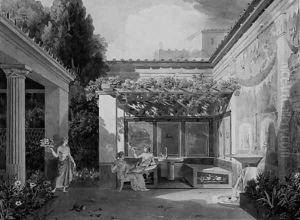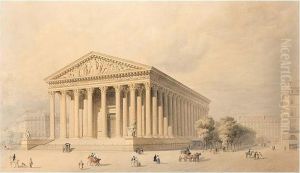Jules Frederic Bouchet Paintings
Jules Frederic Bouchet was a French painter who lived and worked during the 19th century. Born on November 20, 1834, in La Rochelle, France, Bouchet was known for his landscapes, still lifes, and portraits. He was part of the artistic movement of realism that sought to represent subject matter truthfully, without artificiality and avoiding artistic conventions, implausible, exotic, and supernatural elements.
Bouchet studied under the guidance of influential French artists of his time, which allowed him to develop a meticulous approach to painting. His work was characterized by a keen observation of the natural world and a dedication to capturing the subtleties of light and shadow. His landscapes often depicted the French countryside and rural settings, where he skillfully rendered the changing seasons and the daily lives of the people within these landscapes.
In addition to his landscapes, Bouchet also gained recognition for his still lifes, which were celebrated for their intricate detail and the vibrancy of their colors. His portraits, on the other hand, were admired for their psychological depth and the ability to capture the essence of the sitter's character.
Bouchet exhibited his work in various salons and galleries throughout his career, gaining a respectable reputation among art critics and patrons. Despite his success, he remained dedicated to his craft rather than seeking fame or fortune, which meant that he was less well known than some of his contemporaries.
Jules Frederic Bouchet died on May 27, 1910, in Paris. His contributions to the field of painting were marked by his devotion to realism and his skill in capturing the beauty of the ordinary. Although not as widely recognized as some of his peers, his work continues to be appreciated by art historians and collectors for its honesty and its technical proficiency.


